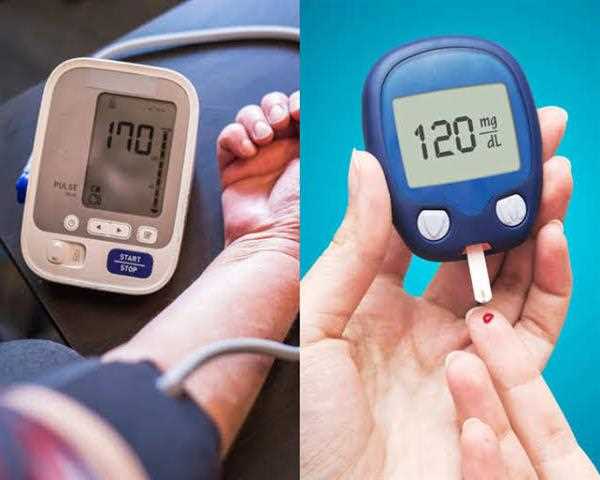Controlling blood pressure and blood sugar levels is crucial for maintaining good health and preventing complications. While I can provide general guidelines, it is important to consult with a healthcare professional for personalized advice, as they can consider your specific medical history and provide tailored recommendations.

Here are some strategies that can help in controlling blood pressure and blood sugar levels:
Healthy Eating Habits:
- Follow a balanced diet that includes fruits, vegetables, whole grains, lean proteins, and healthy fats.
- Limit the consumption of processed foods, sugary snacks and beverages, saturated fats, and excessive salt.
- Control portion sizes to manage calorie intake and maintain a healthy weight.
Regular Physical Activity:
- Engage in regular aerobic exercises, such as brisk walking, jogging, cycling, or swimming, for at least 150 minutes per week.
- Incorporate strength training exercises to improve overall fitness.
- Consult with your healthcare provider to determine the appropriate exercise regimen for your specific needs.
Weight Management:
- Maintain a healthy weight through a combination of a balanced diet and regular physical activity.
- Losing excess weight can help improve blood pressure and blood sugar control.
Monitor Blood Pressure and Blood Sugar Levels:
- Regularly check and monitor your blood pressure and blood sugar levels as advised by your healthcare provider.
- Keep a record of your readings and share them with your doctor during check-ups.
Medication Adherence:
- If prescribed medication for high blood pressure or diabetes, take them as directed by your healthcare provider.
- Follow the recommended dosage and timing to ensure optimal control of your blood pressure and blood sugar levels.
Stress Management:
- Practice stress-reducing techniques like deep breathing exercises, meditation, yoga, or engaging in hobbies and activities that help you relax.
- Chronic stress can contribute to elevated blood pressure and blood sugar levels, so managing stress is important.
Limit Alcohol and Tobacco:
- If you consume alcohol, do so in moderation.
- Avoid tobacco in any form, as it can significantly increase the risk of developing high blood pressure and diabetes-related complications.
Regular Healthcare Check-ups:
- Schedule regular visits with your healthcare provider to monitor your blood pressure, blood sugar levels, and overall health.
- Discuss any concerns or difficulties you may be facing in managing your condition.
Remember, these strategies are general recommendations, and individual needs may vary. It is essential to work closely with your healthcare provider or a specialist, such as a cardiologist or endocrinologist, for personalized advice and to develop a comprehensive management plan tailored to your specific situation. They can provide the most appropriate guidance based on your medical history, current condition, and any underlying health issues.